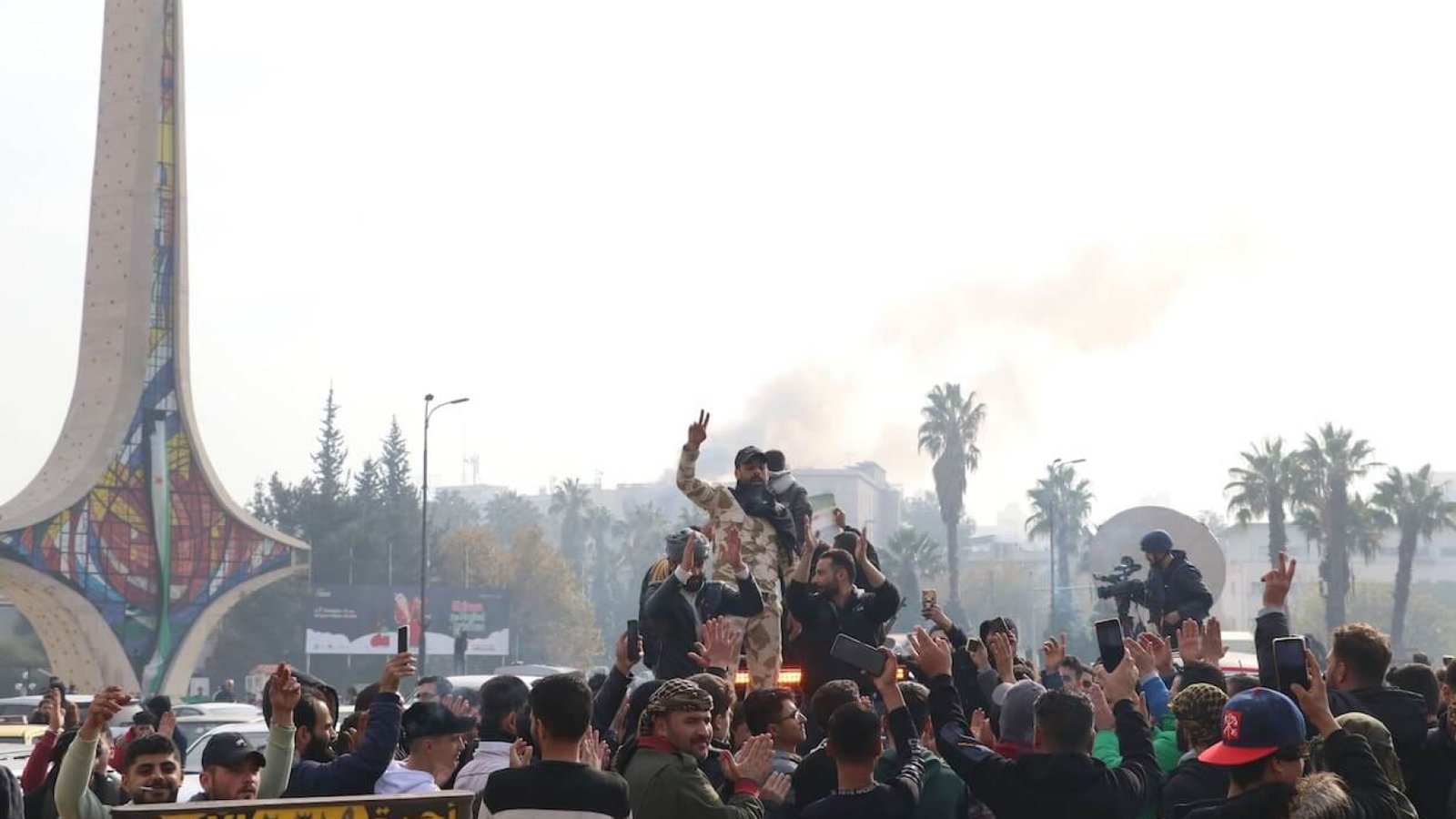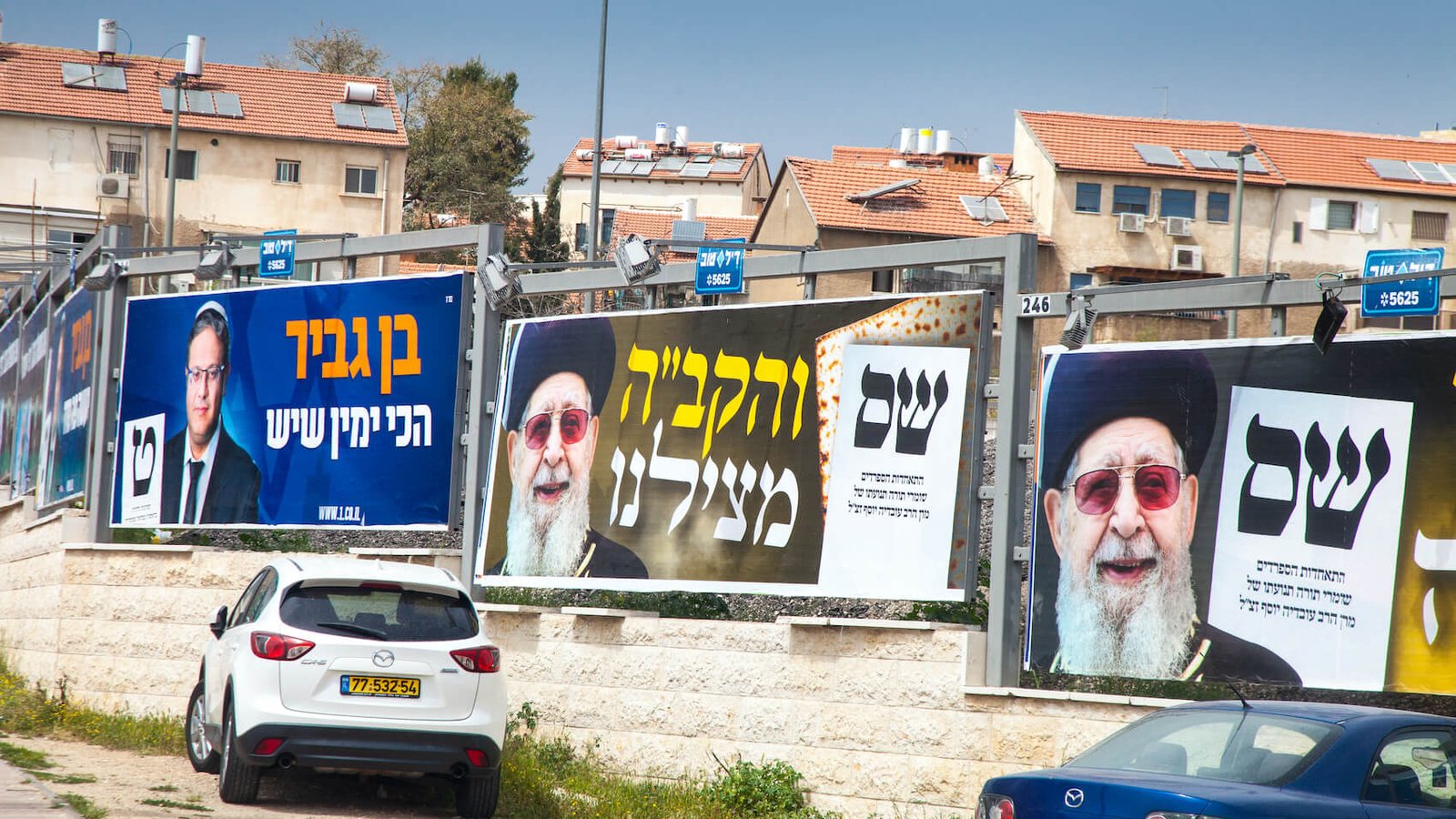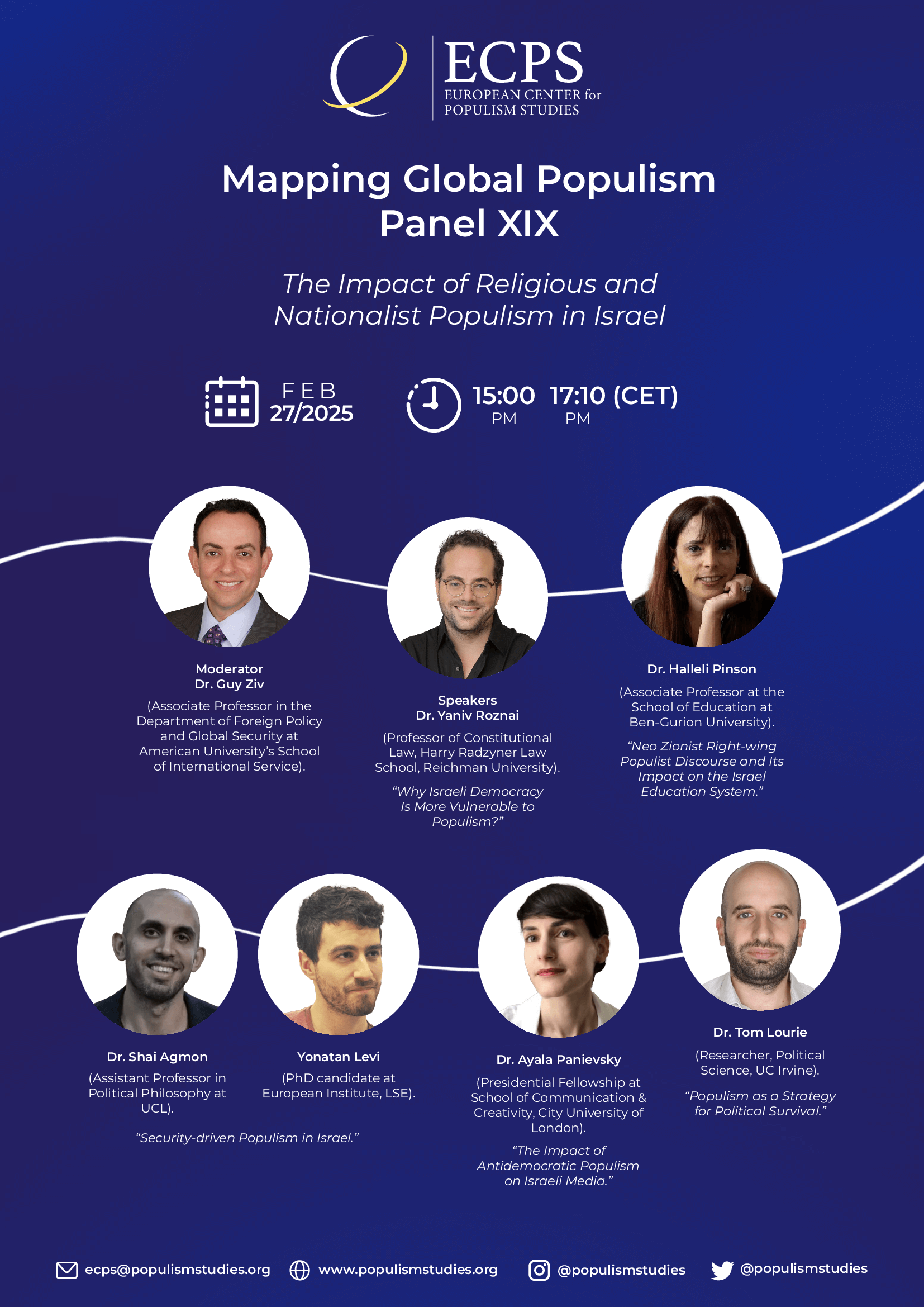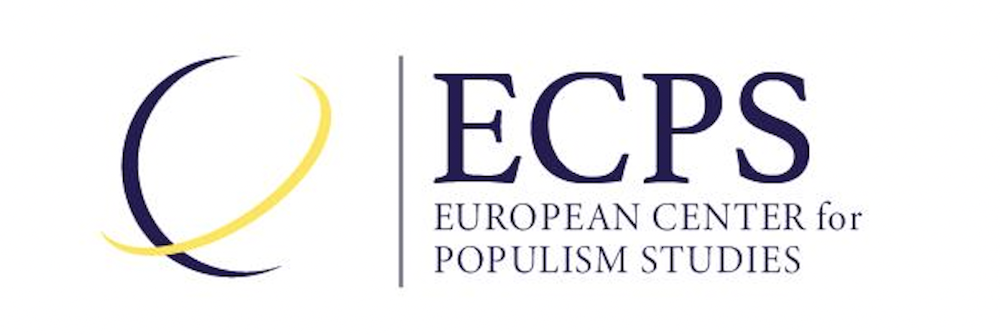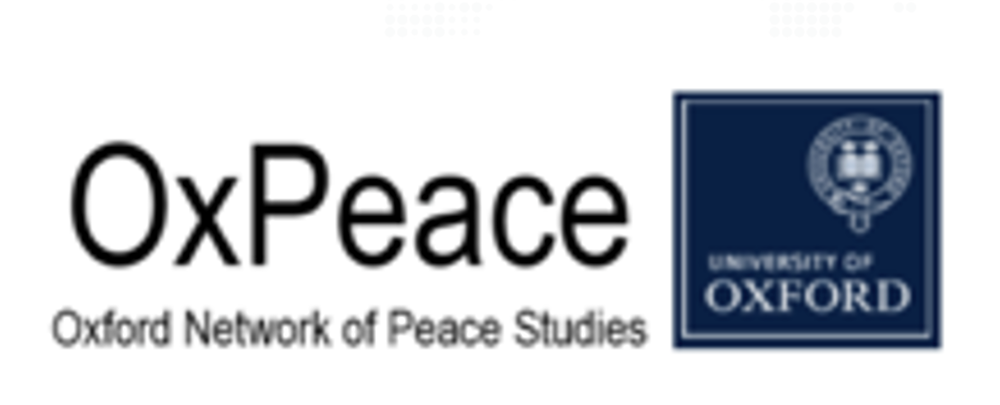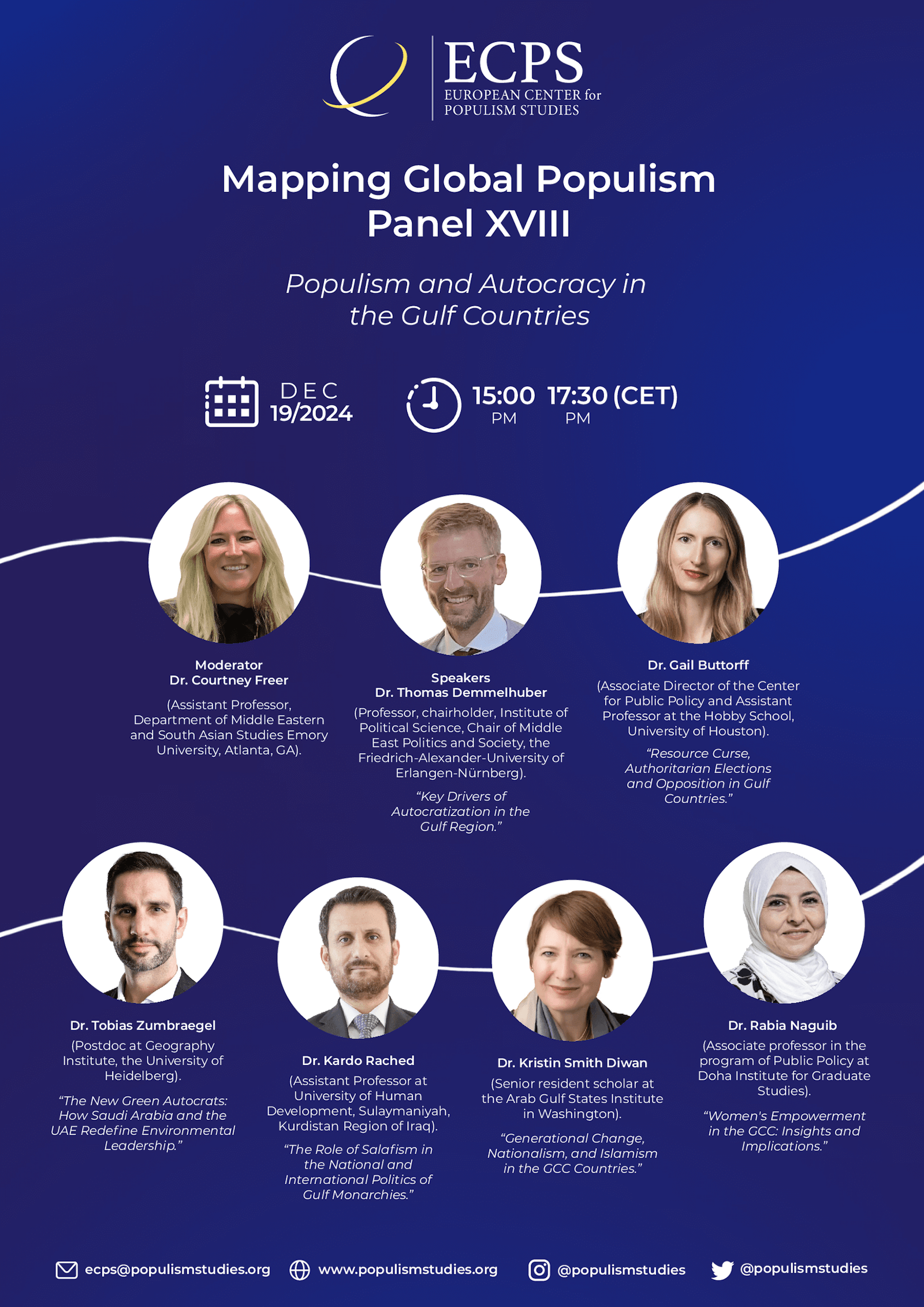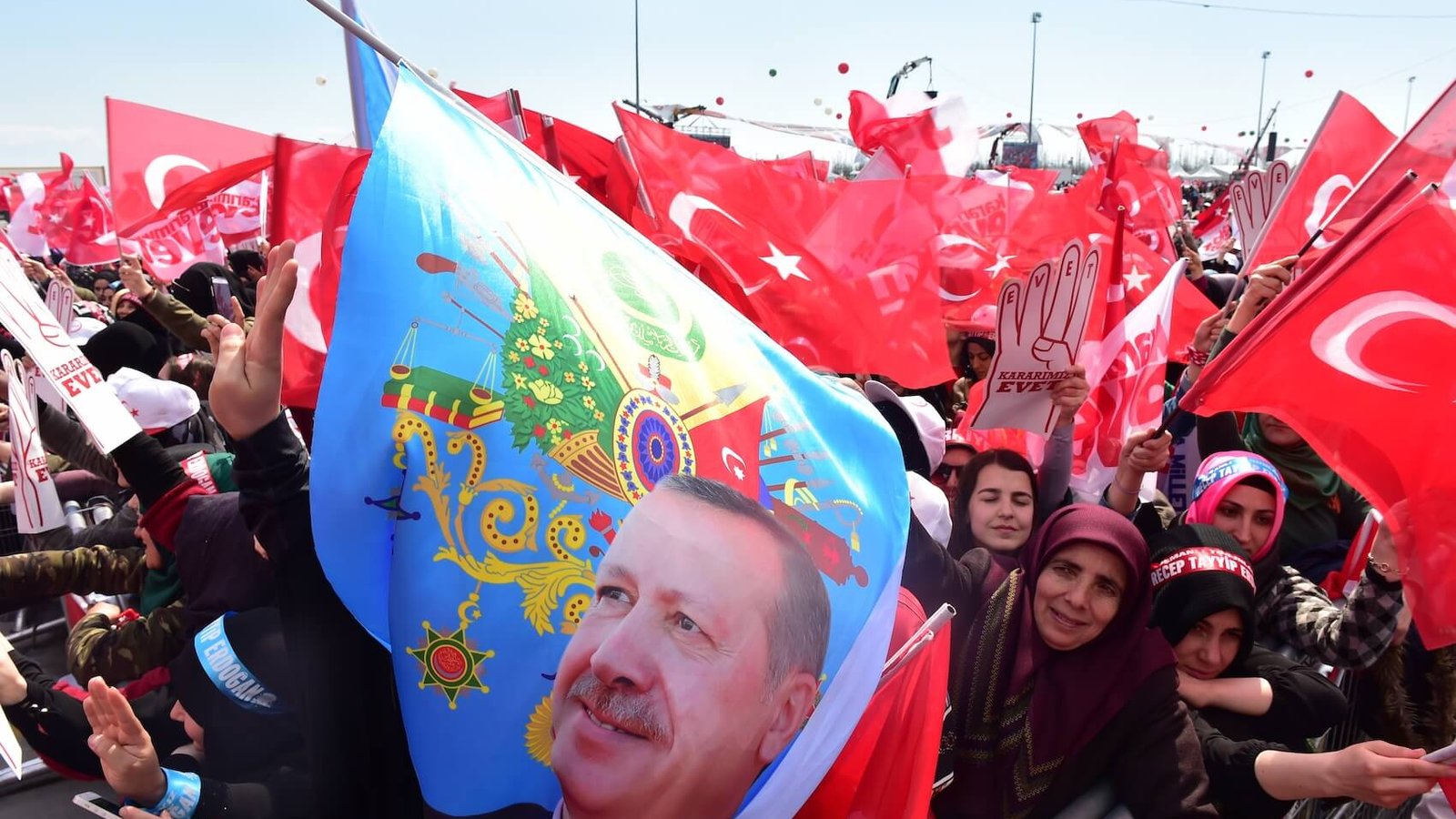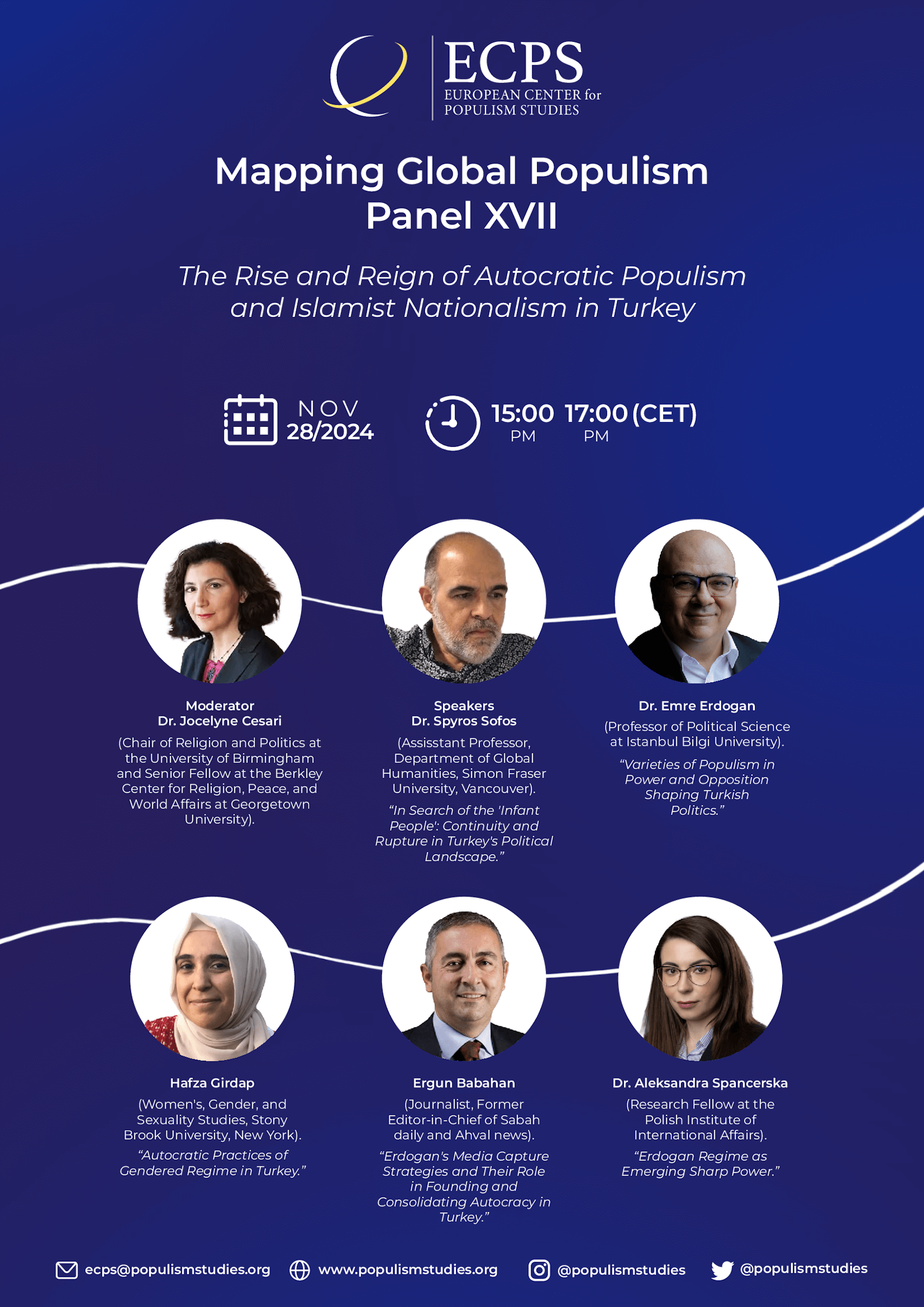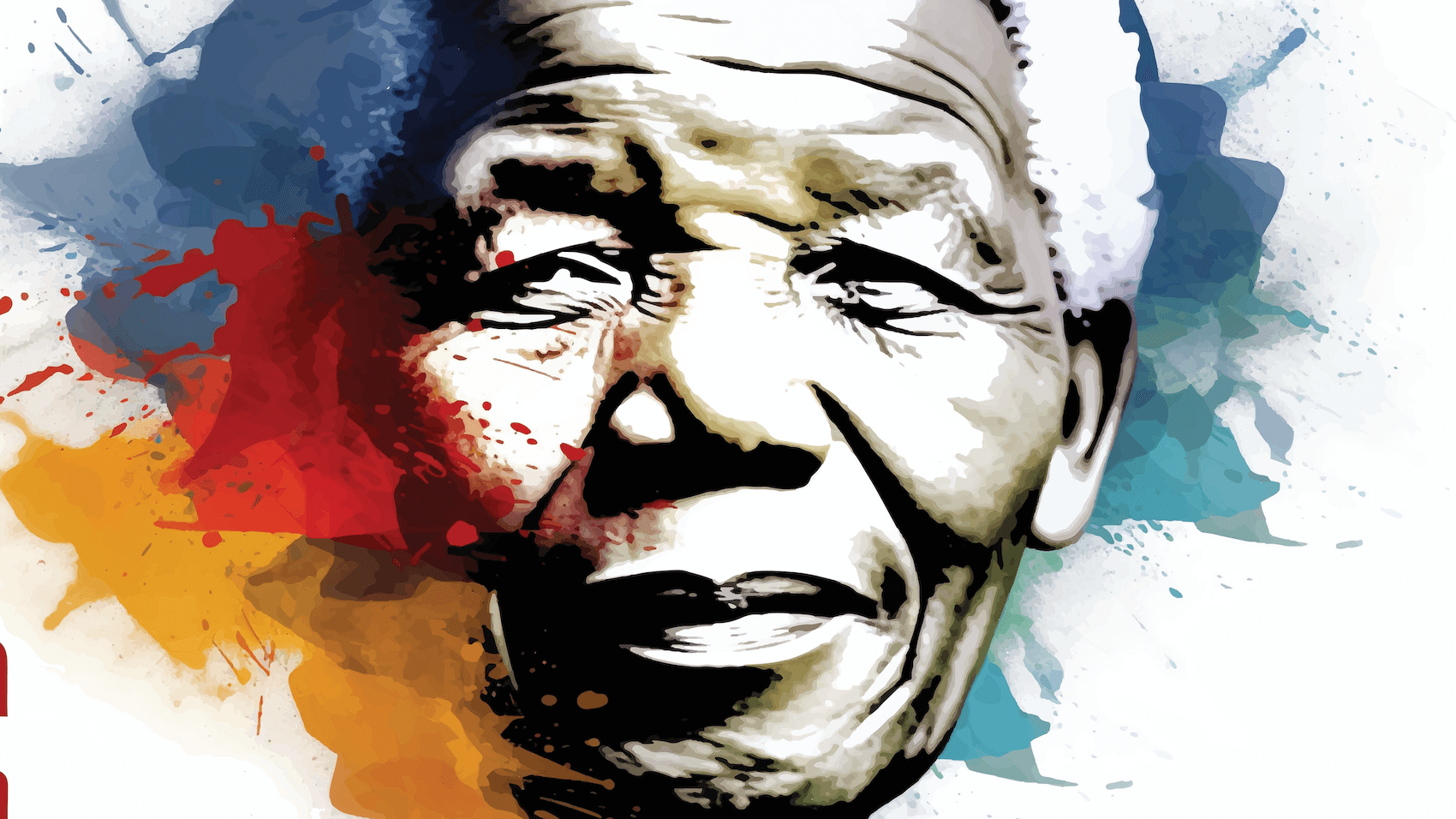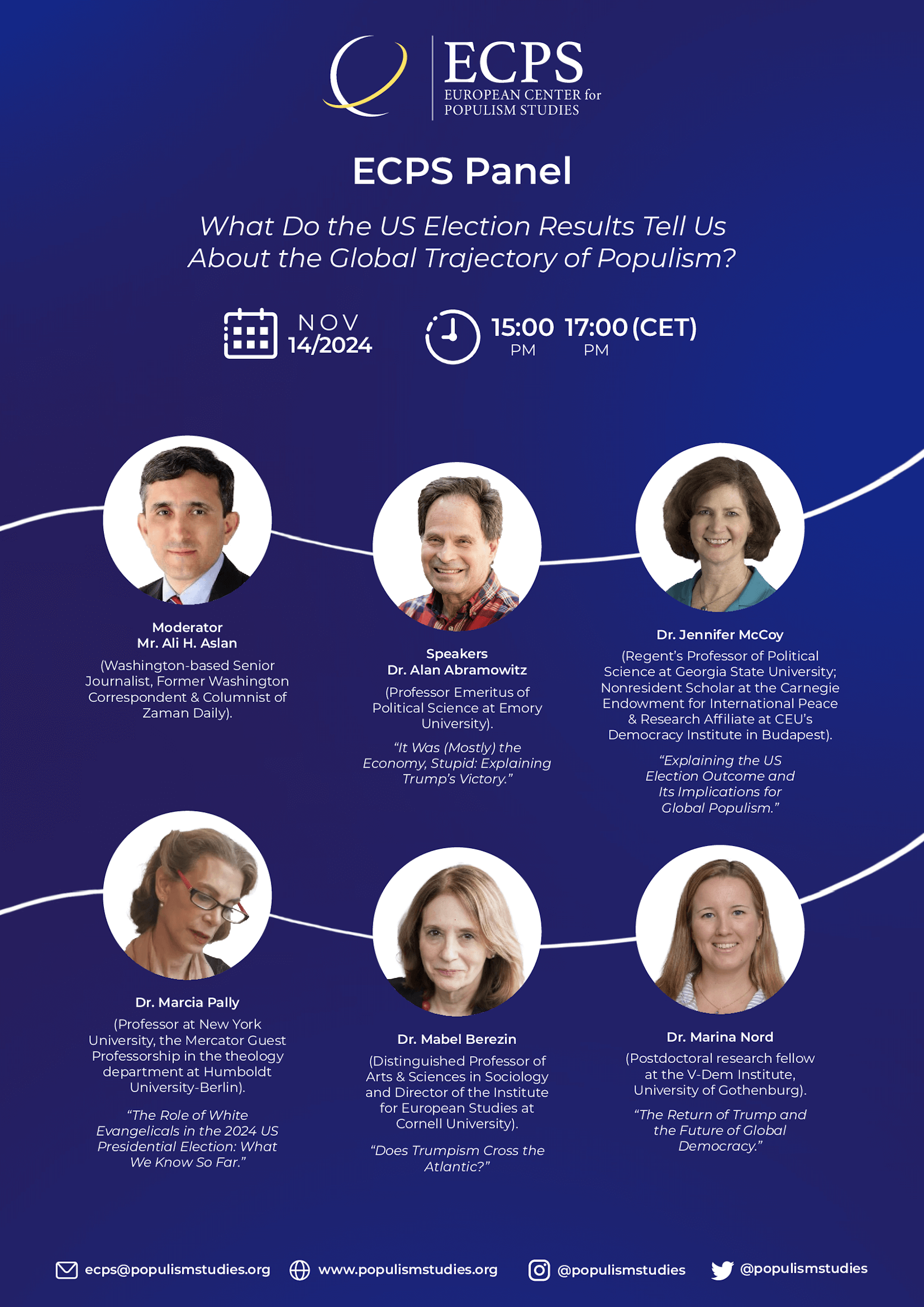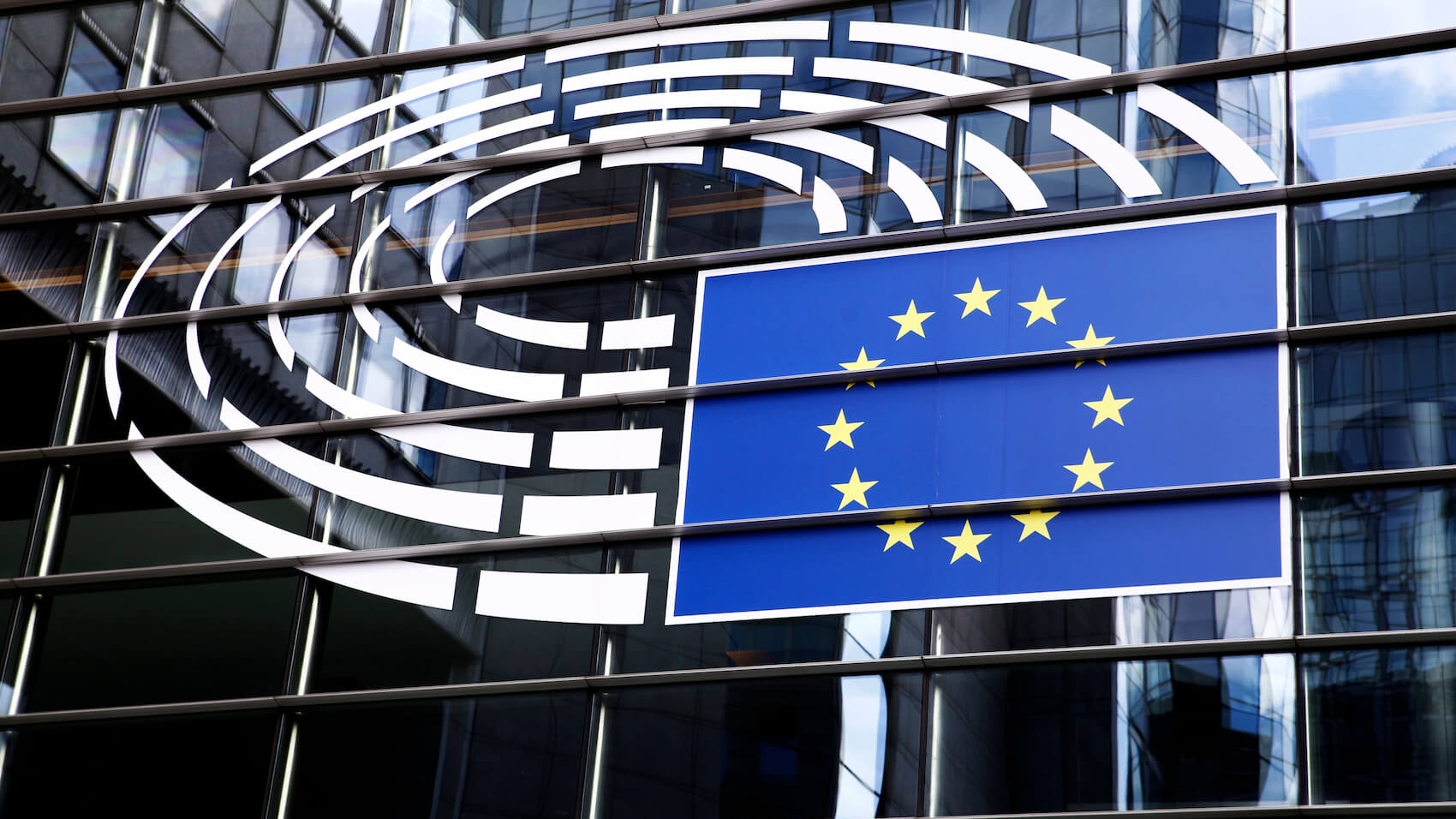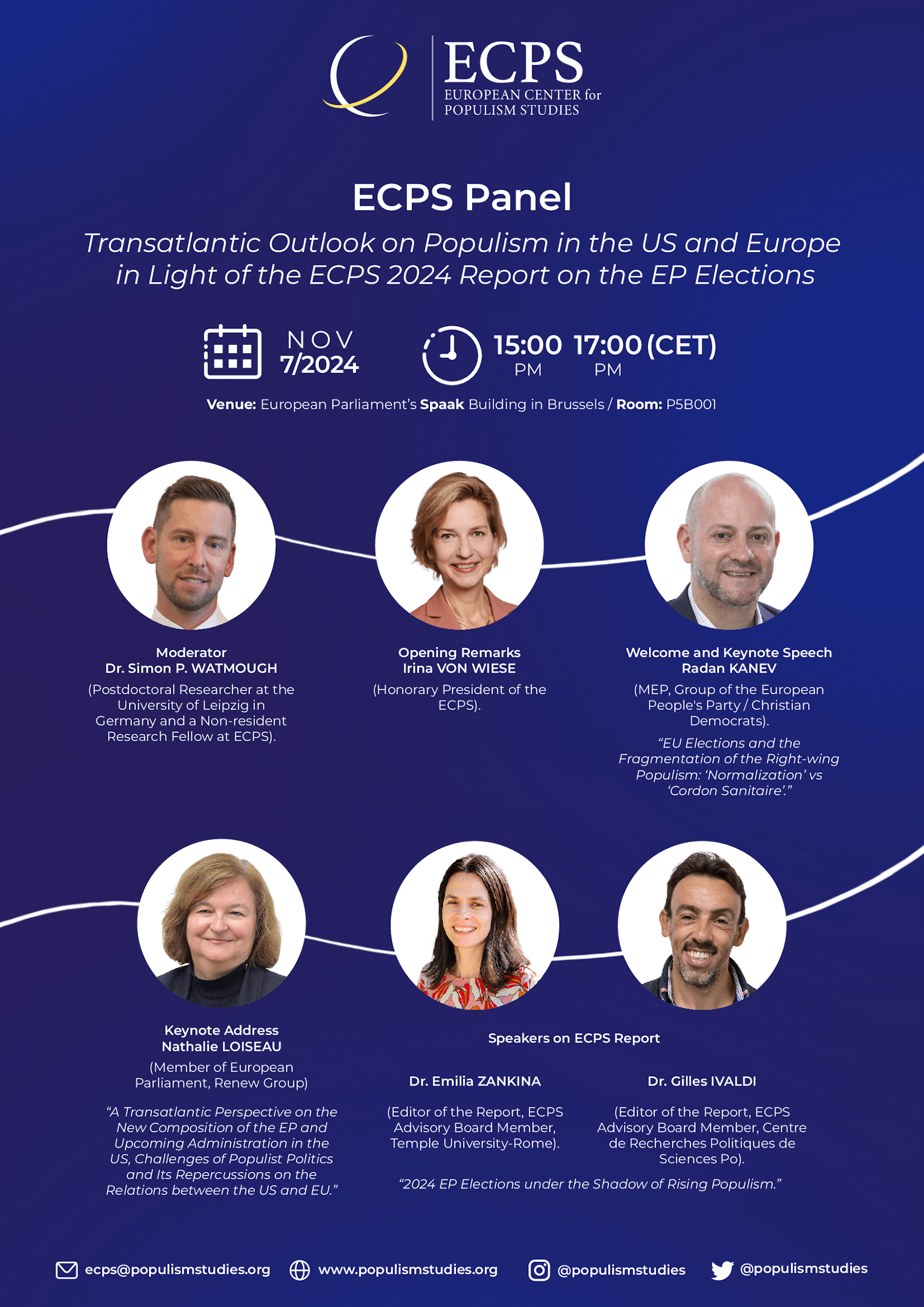Date/Time: Thursday, April 24, 2025 — 15:00-17:10 (CET)
Click here to register!
Moderator
Dr. Ibrahim al-Marashi (Associate Professor of History, California State University).
Speakers
“Syrian Sunni Jihadi Chickens Home to Roost: Assad’s Fatal Gamble in Iraq,” by Dr. Reda Mahajar (Research Fellow at The Conflict Analysis Research Centre (CARC) at the University of Kent).
“Waves of Populism in Iraq,” by Hashim Hayder Khashan Al-Rekabi (Lecturer, University of Baghdad).
“Memory, Fear, and Sectarianism in Syria,” by Dr. Haian Dukhan (Lecturer in Politics & International Relations, SSSHL Department of Humanities and Social Sciences, Teeside University).
“Gendered Politics and Women’s Status Under Iraqi, Syrian, and Kurdish Authorities,” by Dr. Shilan Fuad Hussain (Marie Sklodowska-Curie Researcher; Research Fellow at the Institute of Domestic Violence, Religion & Migration, UK).
“The Evolution and Mishaps of Kurdish Identity Politics Under Multiple Dominations,” by Rojin Mukriyan (PhD candidate in the department of Government and Politics at University College Cork, Ireland).
Click here to register!
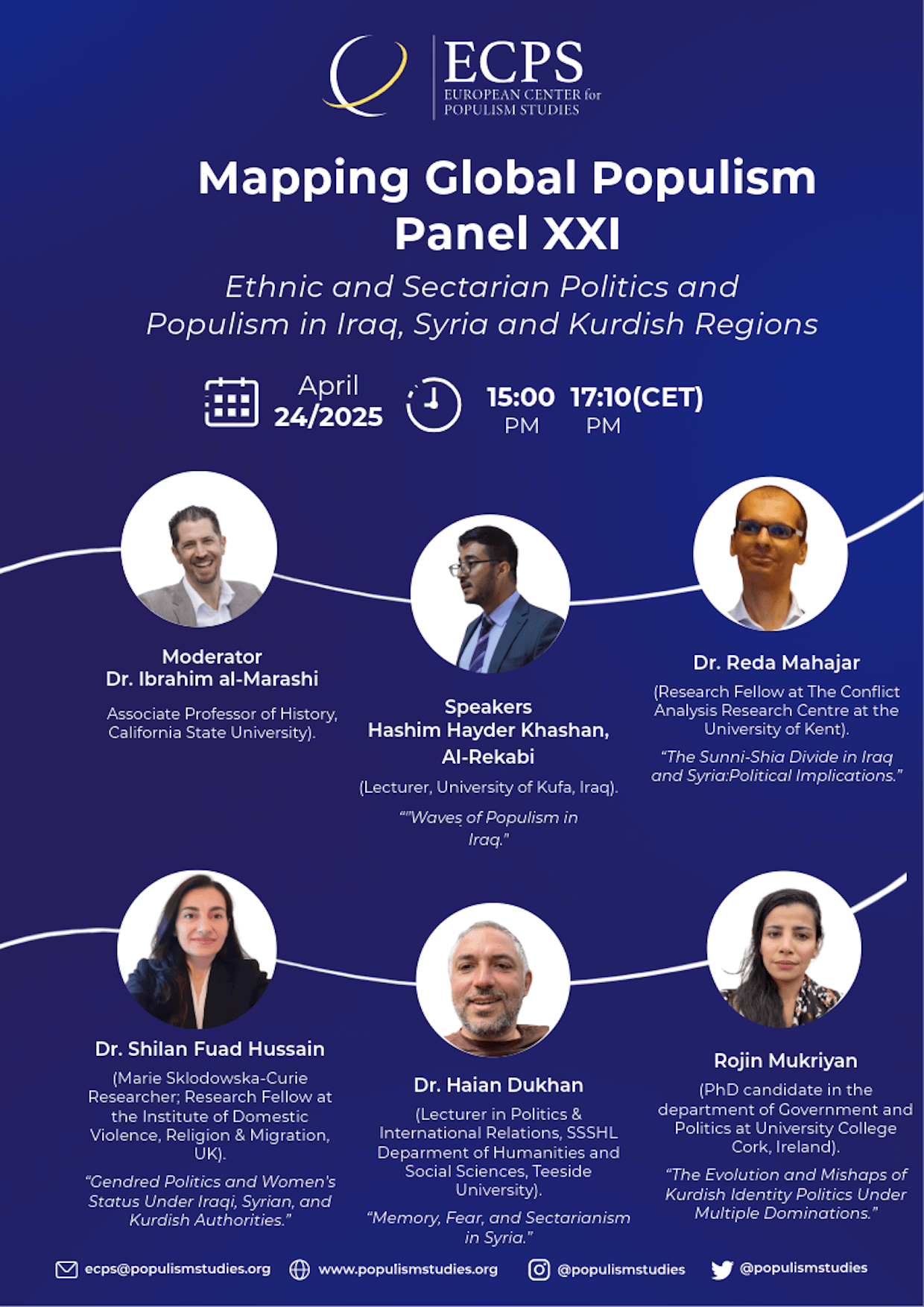
Brief Biographies and Abstracts
Dr. Ibrahim Al-Marashi is Associate Professor of Middle East History at California State University San Marcos, and an advisory board member of the International Security and Conflict Resolution (ISCOR) program at San Diego State University (SDSU), as well as an adjunct lecturer at its School of Public Health. He is also a visiting lecturer with the University of San Diego’s Department of Political Science and International Relations. Al-Marashi received his doctorate from the University of Oxford. He is the co-author of Iraq’s Armed Forces: An Analytical History (2008), The Modern History of Iraq (2016), and A Concise History of the Middle East (2024).
Syrian Sunni Jihadi Chickens Home to Roost: Assad’s Fatal Gamble in Iraq
Dr. Reda Mahajar is a research fellow at the Conflict Analysis Research Centre (CARC) at the University of Kent. His current postdoctoral research focuses on how the Hajj rituals reproduce the ‘Sunni’ and ‘Shia’ labels as categories of power in Western Europe. Dr. Mahajar earned his PhD in International Relations from the University of Kent. His PhD dissertation, titled “Shialism: The Historical Persistence of the Sunni-Shia Binary,” examines the historical persistence of the ‘Sunni’/‘Shia’ labels as constructs of power in the ‘Arab’ and ‘Muslim’ worlds, as well as in the ‘proverbial West.’Dr. Mahajar’s research interests include exploring the ontological, temporal, and epistemological assumptions that underpin conceptualizations of identities as categories of power in the fields of international relations, migration, Middle Eastern studies, and nationalism studies.
Waves of Populism in Iraq
Mr. Hashim Hayder Khashan Al-Rekabi is a lecturer at Baghdad University, where he teaches courses in behavioral statistics and introduction to political science. He also mentors senior students in drafting their capstone research projects. Additionally, he is the founder of the Platform Center for Sustainable Development (PSDIraq), which aims to establish a policy-oriented youth network to drive positive change through policy work. Al-Rekabi holds a Master’s degree in Comparative Politics from Western Illinois University.
Abstract: My presentation challenges the views that post-2003 Iraq should be studied in isolation and demonstrates that many of the pre-2003 dynamics impacted the post-2003 era, mainly populism. It sheds light on the three waves of populism in Iraq, the authoritarian populism of Saddam’s regime being the first, given that he was the leader of a secular and pan-Arab party but frequently used religion and nationalism strategically and selectively under certain conditions, creating the context of modern populism. The second wave is the ethno-sectarian populism post-2003 that created multiple populist actors who demonstrated their allegiance to parliamentary democracy but undermined it by their practices. The third and final wave this paper examines is the modern populism of post-2014, where insiders nurtured nationalist populism due to the declining appeal of sectarianism, the deep political divisions, and widespread disappointment. This paper is based on a field study measuring popular perception of post-2003 political systems, including populist tendencies, level of trust, and other demographic and democratic factors.”
Memory, Fear, and Sectarianism in Syria
Dr. Haian Dukhan is a Lecturer in Politics and International Relations at Teesside University and a Fellow at the Centre for Syrian Studies, University of St Andrews. He is the author of State and Tribes in Syria: Informal Alliances and Conflict Patterns (Routledge, 2019) and co-editor of Spoils of War in the Arab East: Reconditioning Society and Polity in Conflict (Bloomsbury, 2024). His research focuses on the international relations of the Middle East, with a particular emphasis on the role of non-state actors in armed conflicts. His work has appeared in the International Journal of Middle East Studies, Nations and Nationalism, Small Wars and Insurgency, and others. He has also authored multiple policy reports for USAID, the Konrad Adenauer Foundation, the Middle East Institute, and others on issues related to sectarianism, extremism, and forced migration. Previously, he taught politics and international relations at the universities of Leicester, Edinburgh, and Queen Mary University of London, and held research positions at the Central European University in Austria and Roskilde University in Denmark.
Abstract: The Syrian uprising and subsequent civil war have been extensively studied with a predominant emphasis on sectarianism between the Sunni and Alawite sects. This narrow focus overlooks the profound influence of other religious and ethnic elements within Syrian society. My Presentation aims to broaden the analytical lens by examining the position and attitudes of Christians in the Al-Hasakah governorate regarding the Syrian uprising and opposition forces. My presentation addresses two key inquiries: first, the factors influencing Christians’ position in Al-Hasakah regarding the Syrian uprising, and second, the ramifications of these positions on intercommunal relationships in the region. I will argue that the collective memory of fear experienced by Christians, manipulated by the Syrian regime, has contributed to the emergence of “sectarianism from below” and “sectarianism from above.” The former reflects the construction of sectarian identities by Christians in response to discrimination and marginalization, while the latter pertains to influential institutions perpetuating sectarian identities and divisions. My findings highlight the complex interplay of factors shaping communal attitudes and relations during times of upheaval and conflict.
Gendered Politics and Women’s Status Under Iraqi, Syrian, and Kurdish Authorities
Dr. Shilan Fuad Hussain is dedicated to advancing gender equality and advocating women’s rights. She is a Fellow at the Institute of Domestic Violence, Religion & Migration, and The Integrity Centre. She is an Associate Editor for Brill and Routledge and a Senior Consultant for gender-related societal issues. She is an Associate Fellow of the Higher Education Academy. She was previously a Marie Sklodowska-Curie Postdoctoral Fellow in Gender Studies and Cultural Analysis (UKRI), a Visiting Fellow at the Washington Kurdish Institute (U.S.), and a Doctoral Fellow at the Geneva Centre for Security Policy (Switzerland), where she has published several papers and received tailored training. She holds a Master’s Degree in Middle Eastern Studies from the University of Bologna and a PhD in Cultural Analysis from the University of Urbino (Italy). She has developed a track record in Cultural Analysis alongside Middle Eastern Studies. She is an interdisciplinary academic and works on a variety of topics, including cultural representation, production, and practices; gender-based violence, women’s human rights and empowerment; state policies enhancing female equality. She has published 20 articles in peer-reviewed academic journals, 3 special issues, 4 book chapters, one co-edited book, 12 open-access articles online, 10 op-eds; one single-authored book is forthcoming, and an edited book and edited Volume. Personal website: www.shilanfuadhussain.com.
Abstract: This study examines the intersection of gendered politics and women’s status under Iraqi, Syrian, and Kurdish authorities, analysing how political structures, legal frameworks, and societal norms shape women’s rights and participation in governance. Utilizing a comparative approach, the research draws on legal documents, policy analyses, and interviews with activists, policymakers, and scholars to assess the extent to which state and non-state actors influence gender dynamics. The findings reveal stark contrasts between authoritarian regimes, semi-autonomous governance, and stateless political movements in their approaches to women’s rights. In Iraq and Syria, shifting power structures, sectarian conflicts, and legal pluralism have led to inconsistent protections for women, often subordinating gender equality to nationalist or religious agendas. In contrast, Kurdish-led administrations have promoted more progressive gender policies, though challenges remain in implementation and enforcement. The study argues that women’s status is not only a reflection of legal rights but also of broader political ideologies and power struggles. By situating gender within the framework of state-building and governance, this research contributes to the understanding of how political authority affects women’s agency, representation, and security in conflict-affected and transitional societies.
The Evolution and Mishaps of Kurdish Identity Politics Under Multiple Dominations
Rojin Mukriyan is a PhD candidate in the Department of Government and Politics at University College Cork, Ireland. She has also obtained a BA and MSc from University College Cork after fleeing from Iran for political reasons in 2014. For her BA, she double majored in Philosophy and Politics, and wrote a dissertation on the role of ontological insecurity in Turkey’s treatment of the Kurds. She then obtained an MSc in Government and Politics from UCC with a thesis on the application of classical republican conceptions of domination and political liberty to the Kurds of Rojava (West Kurdistan). Presently, her PhD research project is focused on a thorough analysis of jailed Kurdish leader Abdullah Ocalan’s conceptions of democratic confederalism and democratic civilization.
Rojin’s main research areas are in political theory and Middle Eastern politics, especially Kurdish politics. She has published articles in the Journal of International Political Theory, Philosophy and Social Criticism, and Theoria. Her research has thus far focused on the areas of Kurdish liberty, Kurdish statehood, and Kurdish political friendship. She has published many think tank commentaries and reports on recent political developments in eastern Kurdistan (Rojhelat), or north-western Iran. She has also frequently appeared on a variety of Kurdish and Persian language news channels.
Abstract: This presentation conducts a critical comparative analysis of populism by examining the PYD-led Democratic Autonomous Administration of North and East Syria (DAANES) alongside the PUK and KDP-led Kurdistan Regional Government (KRG). Drawing upon Ernesto Laclau’s conceptualization of populism as a strategy for hegemonic struggle and Jan-Werner Müller’s characterization of populism as a ‘permanent shadow’ over representative democracy, this study refrains from adopting a monolithic definition of populism. Instead, it establishes a set of criteria for assessing whether the DAANES or the KRG can be classified as populist governments. The investigation explores the theoretical and ideological frameworks underpinning both political entities, bolstered by qualitative data derived from their public speeches, publications, and policy documents. The analysis argues that DAANES can be viewed as exhibiting left populist characteristics that challenges both existing state institutions and the rise of Islamist extremism. In contrast, the KRG, dominated by the PUK and KDP, does not exhibit the characteristics of left populism, as it fails to challenge the existing system or promote an inclusive notion of peoplehood aimed at equality and freedom. Although some figures within the KRG may display populist tendencies, the KDP and PUK are predominantly formed and controlled by two elite families, thereby offering no anti-establishment prospects; consequently, they do not embody right-wing populism either. It is likely better to view both parties as exhibiting the expected neoliberal tendencies of parties inclined to use the state as a means for laundering their private interests. In turn, following Chantal Mouffe’s line of argument, this paper asserts that the left populism found in the DAANES could effectively challenge the corrupt and clientelist governance within the KRG if it found support within the Kurdish region of Iraq. This paper aims to contribute to a nuanced understanding of populism within the context of Kurdish politics. By doing so, it enriches the field of Kurdish political studies by offering a comprehensive analysis of populism in a context that has been insufficiently explored, thereby advancing the broader discourse on populism.

